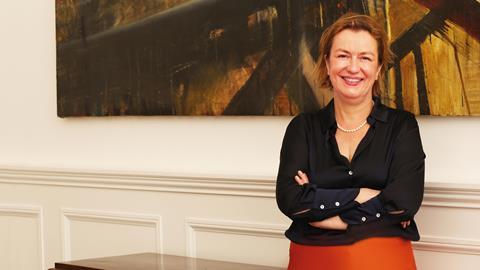Partner, London
I came to law later in life, after studying the history of art and a career in journalism. I really enjoyed my previous job, working for Der Spiegel in the London office on subjects ranging from politics, culture, history, foreign affairs to science. It meant having to gain some expertise on a subject quickly because we had weekly deadlines and no extensions. The role was varied and interesting and I learnt many transferable skills – attention to detail, communication skills, being resourceful. This was before the internet and knowing where to go for the most obscure information was the bread and butter of the job. I had to always be mindful of the 5Ws: what, where, when, who and why. I still use this mantra when drafting a legal document or simply a letter. It is important and helpful to be clear from the outset about the purpose of the document and for the recipient to be able to easily and quickly access it.
Eventually, however, I wanted a change. The idea of becoming a lawyer came to me on a holiday to the South Pacific – it requires intellectual rigour and direct involvement in problem solving – and within six months I had enrolled at law college for a part-time law conversion course. I started on 11 September 2001, the day of the Twin Towers attacks. I remember calling the college to ask whether there would be enrolment because, to me, the world had just come to a standstill.
I went into law conversion a bit blue-eyed. I anticipated having a training contract under my belt within a few applications but ended up submitting over 150 – none successful and only some resulting in interviews. It was disheartening but I learnt a lot during the process. I eventually started as a paralegal at a family law firm, specialising in children law, and from there progressed to a training contract and qualification. In a way, I ‘fell’ into children law but I am very glad I did.
'Children law is varied and fast-moving. No week is like the next and emergencies can involve long hours. There aren’t always obvious answers'
I have a dual practice. I specialise in complex care proceedings, representing parents, relatives, or the subject children; and in adoptions, surrogacy and international children cases, such as relocations and abductions. I enjoy finding resolutions to unusual factual scenarios within the available legal frameworks and how the law works in other jurisdictions. I deal with applications where the mother wants to relinquish their child for adoption and, for a number of reasons, keep the birth hidden from the father or her family; adoptions of children where none of the parties live in the UK; foreign surrogacy arrangements. Most recently, my clients had to travel into war-torn Ukraine where the surrogate lived and the baby was born so they could bring their child home. I also had a case where a minor became stranded abroad and wanted to come home.
I have represented people from all walks of life. This includes representing children directly, without a children’s guardian, in cases that have dealt with the most serious allegations of non-accidental injury, factitious illness, sexual abuse and radicalisation. There is a huge commitment within the profession to go above and beyond – particularly in public law cases, meaning those with local authority involvement and serious safeguarding concerns. People sometimes ask how we deal with what we see and read. It really helps talking to colleagues, but our job is also about finding solutions and positive outcomes for those children.
Children law is varied and fast-moving. No week is like the next and emergencies can involve long hours. There aren’t always obvious answers. One memorable case involved a refugee mother who had become separated from her child on their journey to the UK, where the child had subsequently been adopted. When she finally also arrived in the UK, we managed to get the adoption order set aside, and child and mother were reunited. Another that will always stay with me is one of the first care cases I did, many years ago. My client had a very difficult upbringing and was too young to have overcome the adverse events in her life to be able to care for her child. I will never forget her physical pain at being told that she would not be able to keep her child, but we managed to keep the child in the family so she was still able to see them regularly.
The team at Dawson Cornwell is international and diverse. We all have specialisations, speak many different languages, and can tap into each other’s expertise. Discussing cases with colleagues is important and part of the thought process.
































No comments yet